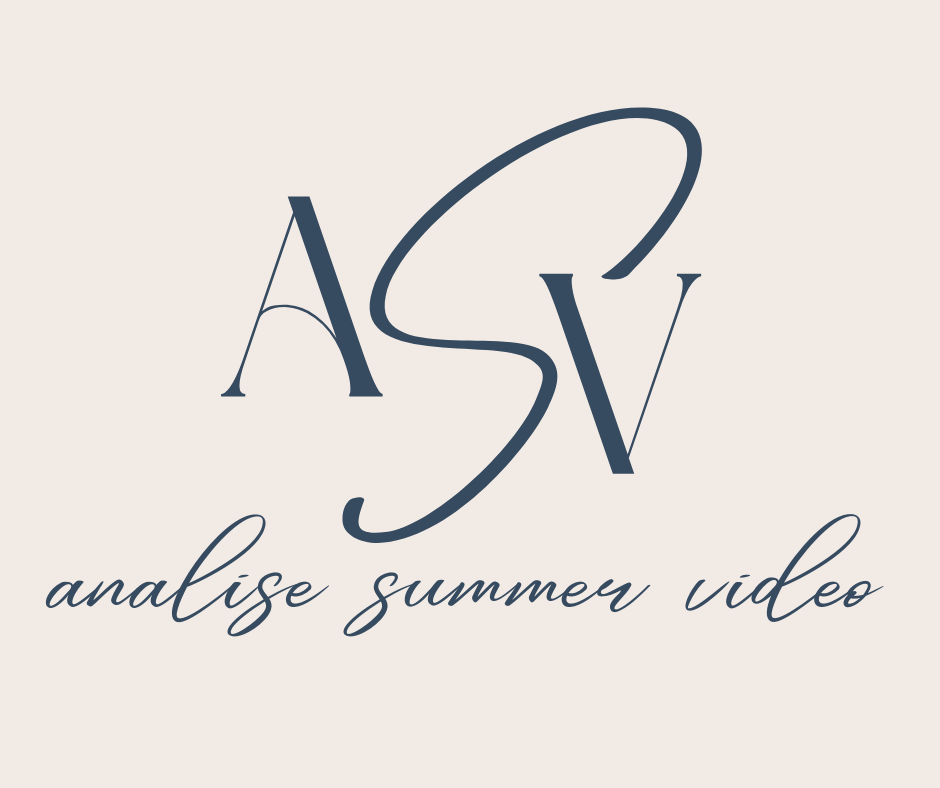Wedding Videography - A candid Mini Guide for Couples
One of the most underrated but completely incredible vendors you will have on your wedding day is a wedding videographer. They are there on your day to capture every highlight and important moment. They document movement and audio that pictures cannot begin to encapsulate. This is a mini guide for the couples who want to learn more about what it would mean to hire a wedding videographer for your wedding or elopement.
What's with the Short Videos and Highlight Films? Wedding filmmakers have been around for awhile, but in recent years, the industry has transitioned to short social media-worthy clips and highlight videos. The reason for this is the growing realization that a 1-hour wedding film will only be watched a handful of times before nobody wants to watch that lengthy and dull movie ever again.
People have realized they would so much rather have a film that sums up their love story, who they are as people, what they mean to each other, what their family means to them, the vibe, the energy, and the joy from the day rather than a film that is a play-by-play of each moment one after the other.
Everyone will want to watch the highlights a million times over, but does everyone want to watch every waking moment from the wedding day, probably not. In the filmmaking world, we may get 100 hours of footage and turn that into a 1.5 hour long film. So, when videographers for weddings capture 4-8 hours of footage on a wedding day, it just makes sense that the best story is going to be told in 3-10 minutes rather than an hour or more. Videographers want to tell the best, most compelling story that takes the bride and groom right back to their wedding day. They do not want to create a film that makes you want to fall asleep. Hence, the shorter-length wedding films.
What is it that Wedding Videographers Even Do? With wedding films shorter, you would think less work for the videographer. That is not true. The videographer is crafting a creative, complicated, cinematic film for individual personalities instead of just putting the footage in a timeline and checking that the audio matches the video. Wedding videography is an art in most cases. While some have a cookie cutter method that renders all films to have the same plot, many others create a story unique to each couple they work with. We do it because we care about each individual love story that we have the opportunity to capture moments of, from one of the most important days in many people's lives.
Let's back up. Before the wedding day, we chat with couples to understand more of who they are and their love story. We help to explain what videography will look like on the day of and to share expectations for the final product.
On the day of, we are with the bride and groom, capturing all of the moments and recording the audio. We record atmospheric audio along with vows, speeches, reactions, and ceremony audio. We not only record audio but have back-up sources. If one source malfunctions because of someone brushing against the microphone or from wind or because it accidentally got turned off, we've got options. We also provide video lighting, basically lights that are always on such as spotlights and on-camera panel lights. While photographers have flash, we have video lights.
Then, once the wedding day is over, we back up our footage to an SSD, a RAID system, and to an online cloud storage service. We even keep the footage on the sd cards until all films have been delivered. We like to be thorough.
Once everything has been secured, we typically sleep...then we get to editing. Editing takes us anywhere from 30-60 hours to deliver a trailer and an 8-10 minute highlight film for a typical 8-hour wedding day. We cull the footage, organize the footage into a cohesive story, add legal-to-use music, color grade, and adjust audio. There are a few more steps in there, but without getting into the weeds too much, that's pretty much the process. Then we upload to YouTube, to VidFlow, and digitally deliver the film.
What Does Legal-to-Use Music Mean? Glad you asked. Music is subject to copyright issues when you try to use music that is not legally your property or your creation. Basically, using someone's music without permission is stealing and super illegal. The exception to this is that you can get permission to use music through websites such as Artlist or Musicbed in which they offer a selection of music that you can use for a monthly or annual subscription price. The same goes for sound effects. The other option is to pay thousands for permission to use mainstream music, but unless you are a major movie production company, that is probably not an option.
Wedding videography is a beautiful, and incredible art that allows couples to relive their wedding days through moving visuals and audio, something that some would say is invaluable. I recommend hiring a professional to handle the details and complications so you can enjoy everything videography and cinematography has to offer.
